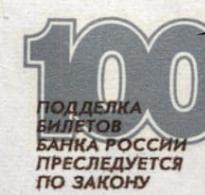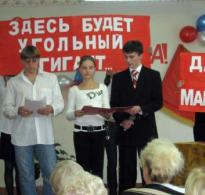Sergei Dovlatov - ours. Compromise Finnish Crepe Socks
The eighth chapter of S. Dovlatov's story "Ours".
In the eighth chapter of S. Dovlatov's story "Ours" there is a story about the author of the writer. The chapter describes the character of the father, his worldview during Stalin's times, the exposure of Stalin and, finally, his departure abroad to America.
The author's father is a Jew, an actor, he perceived life as a dramatic game or acted out a tragedy, in general, life was for him a theatrical performance, where good triumphed over evil and he himself was the central character.
They lived in Vladivostok, which at that time was similar to Odessa. Sailors were hooligans in the city, African music was playing everywhere, restaurants were working.
My father graduated from the theater institute and became a director, after which he worked in the academic theater.
Everything went well, then the anxious Stalinist times came. Mother hated Stalin, father justified the disappearance of people by their own actions or character. One was a drunkard, the other mistreated women. A surprise for the father was the arrest of the grandfather, because the grandfather was a good man, one drawback he ate a lot.
Then my father was kicked out of the theater. The reason was his nationality, a Jew, whose brother is abroad, and his father was shot. My father began to write for the stage. The audience loved his reprises, they always laughed in the hall. My father was a purveyor of puns and jokes.
Parents divorced, because they were completely different people. For example, the man who fired his father from the theater was hated by his mother all his life, and his father was drinking with him a month later.
Divorce, hack work, women .. the cult of personality, war, evacuation - this happened in the following years.
Then the Leader was exposed, the grandfather was rehabilitated, the father married a second time. However, my father believed that things were better under Stalin. Under Stalin, books were published, then the authors were shot. Now writers are not shot. Books are not published. Jewish theaters are not closed. They simply do not exist ... Stalin's heirs disappointed his father, his father was convinced that Stalin was buried in vain, Stalin was an extraordinary mortal.
After that, life for the father seemed dull, dull and monotonous. Father, in principle, was not interested in life, he was interested in theater. He began teaching in the pop class at the theater school. One of the teachers wrote a denunciation. Father was called, he carefully looked at the paper, studied the handwriting, recognized the anonymous person. Anonymous has been exposed. The graphological study gave brilliant results. Boguslavsky confessed.
There was a deep and stubborn misunderstanding of real life in my father ... At that time, the author was publishing in the West and there was a danger of being behind bars in prison, her father's daughter was about to leave. Then my father was fired from work, and the question of going abroad became acute. The whole family moved to live in America, a year later my father came to America. Settled in New Jersey. Plays bingo. All is well, the drama is no longer played out.
Composition
The Nashi cycle is connected simultaneously with the traditions of Babel's Odessa works and Iskander's autobiographical prose. The stories of the cycle are dedicated to close relatives of the autobiographical hero. He talks about his grandfathers on the side of his father and mother, about his parents, cousin, wife and daughter. The history of the family, imbued with humor and love, ends with the birth of a son - a child with a foreign name, who saw the light in America. “This is what my family and our homeland came to,” the author concludes with sadness.
The plot of the “Suitcase” cycle develops according to the principle of a realized metaphor: in a suitcase accidentally discovered in a closet, the hero finds things taken from his homeland that were not useful to him. An unsuccessful attempt by the hero to find a use for himself in his homeland is associated with each of the things. As a result, stories about things add up to the story of a failed, unfulfilled life.
Fernand Leger's jacket is opposed to random things from a suitcase. The suitcase reminds Dovlatov of the suitcase with Platonov's manuscripts that disappeared during the war.
The cycle "Craft", skeptically called by the author "confessions of a literary loser", is a creative biography of Dovlatov. Time restored the true values and cast aside the writer's doubts that he would be reproached, as if he "imagined himself an unrecognized genius." The artist, who was doomed in his homeland to “a feeling of hopeless unsuitability for life”, created a true chronicle of the literary life of the era of stagnation. Its central hero in Dovlatov is the highly valued and beloved by him I. Brodsky. The literary portrait of the poet left by Dovlatov is unsurpassed in terms of accuracy and depth of content: “Brodsky created an unheard-of model of behavior. He did not live in a proletarian state, but in a monastery of his own spirit. He did not fight the regime. He didn't notice him."
S. Dovlatov's story "Foreigner" was first published in 1986. It tells the story of a young woman from a "good family" who had a happy childhood. “Everyone who had a happy childhood needs to think about retribution ... A cheerful disposition, health, beauty - what will it cost me?” - the author reflects philosophically on the fate of his heroine. Her “payment” is love for a person “with the hopeless surname Tsekhnovitser”. The distant result of this love was her departure to emigration. Maria Tatarovich, a lonely Russian woman with a child, found herself on New York's 108th Street and unexpectedly fell in love with the Hispanic Rafael Gonzales. The backdrop to the love story in Inostranka is the life of the Russian colony of New York.
Two storylines are also intertwined in the story “The Branch”: memories of the first love of the autobiographical hero and the image of his life in exile, work on the radio “Third Wave”, relationships and currents within the emigrant environment.
Dovlatov lived in America for twelve years. In 1990, he died suddenly of a heart attack, without waiting for the publication of his works in his homeland. The first books of his stories: “Suitcase”, “Zone”, “Stories” were published by the fiftieth anniversary of the writer, to which he did not live. Most recently, a three-volume collection of his prose was published, and memoirs and articles about him began to appear.
Dovlatov created a peculiar, precise, stingy and aphoristic language. His style is distinguished by exquisite simplicity. The use of anecdotal situations, the vitality of themes make his prose an exciting read. Dovlatov's popularity is increasing over time. This is explained by the feeling frankly expressed in the “Craft” cycle: “I love America ... I am grateful to America, but my homeland is far away. Poor, hungry, mad and drunk! Having lost, ruined and rejected her best sons! .. The motherland is ourselves ... Everything that happened to us is the motherland. And everything that was will remain forever ... ”The opinion was expressed in criticism that Dovlatov is an artist of a world that has sunk into the past. But if our world is ourselves, Sergey Dovlatov will forever remain a chronicler of our time and our contemporary.
The main character, a journalist, left without a job, leafs through his newspaper clippings, collected over "ten years of lies and pretense." This is the 70s, when he lived in Tallinn. Each compromise newspaper text is followed by the author's memories - real conversations, feelings, events.
Having listed in the note those countries from which the specialists arrived at the scientific conference, the author listens to accusations of political myopia from the editor. It turns out that the countries of victorious socialism should go at the beginning of the list, then all the rest. The author was paid two rubles for the information. He thought - three will pay ...
The tone of the note "Rivals of the Wind" about the Tallinn Hippodrome is festive and sublime. In fact, the author easily agreed with the hero of the note, jockey Ivanov, to "paint" the program of the races, and the two of them won money by betting on a previously known leader. It's a pity that the hippodrome is over: the "rival of the wind" fell drunk from a taxi and has been working as a bartender for several years.
In the newspaper "Evening Tallinn", under the heading "Estonian primer", the hero writes cute nursery rhymes in which the beast responds to a Russian greeting in Estonian. The instructor of the Central Committee calls the author: “It turns out that the Estonian is a beast? Am I, an instructor of the Central Committee of the Party, a beast?” “Man is born. ... A man doomed to happiness! .. ”- words from a custom report about the birth of the four hundred thousandth resident of Tallinn. The hero goes to the hospital. The first newborn he reports to the editor over the phone, the son of an Estonian and an Ethiopian, is "married." The second, the son of a Jew, - too. The editor agrees to accept a report on the birth of a third - the son of an Estonian and a Russian, a member of the CPSU. They bring money for the father to name his son Lembit. The author of the upcoming report, together with the father of the newborn, celebrate the event. The happy father shares the joys of family life: “It used to lie like a cod. I say: “Have you not fallen asleep for an hour?” - "No, he says, I hear everything." - "Not much, I say, in you ardor." And she: “It seems that the light in the kitchen is on ...” - “Where did you get that from?” - “And the counter works like that ...” - “You, I say, should learn from him ...” Waking up in the middle of the night with his friend, the journalist cannot remember the rest of the events of the evening ...
The newspaper "Soviet Estonia" published a telegram from an Estonian milkmaid to Brezhnev with a joyful message about high milk yields, about her admission to the party and a response telegram from Brezhnev. The hero recalls how, in order to write a report from a milkmaid, he was sent along with a press photographer Zhbankov to one of the district committees of the party. The journalists were received by the first secretary, two young girls were assigned to them, ready to fulfill any of their desires, alcohol flowed like water. Of course, the journalists took full advantage of the situation. They only briefly met with the milkmaid - and the telegram was written during a short break in the "cultural program". Saying goodbye to the district committee, Zhbankov asked "for treatment" at least beer. The secretary was frightened - "they can see in the district committee." “Well, you chose a job for yourself,” Zhbankov sympathized with him.
"The most difficult distance" - an article on a moral theme about an athlete, a Komsomol member, then a communist, a young scientist Tiina Karu. The heroine of the article turns to the author with a request to help her "liberate herself" sexually. Act as a teacher. The author refuses. Tiina asks: “Do you have scum friends?” “They prevail,” the journalist agrees. After going through several candidates, he stops at Osa Chernov. After several failed attempts, Tiina finally becomes a happy student. As a token of gratitude, she hands the author a bottle of whiskey, with which he sets off to write an article on a moral topic.
“They prevent us from living” - a note about the Republican press worker E. L. Bush who got into the sobering-up station. The author recalls the touching story of his acquaintance with the hero of the article. Bush is a talented man who drinks, cannot stand compromises with his superiors, and is loved by beautiful aging women. He interviews the captain of the West German ship Paul Rudy, who turns out to be a former traitor to the Motherland, a fugitive Estonian. The KGB officers offer Bush to testify that the captain is a sexual pervert. Bush, indignant, refuses, which causes an unexpected phrase from the KGB colonel: "You are better than I thought." Bush is fired, he does not work anywhere, lives with another beloved woman; they also have a hero. Bush is also invited to one of the editorial parties - as a freelance writer. At the end of the evening, when everyone is pretty drunk, Bush makes a scandal by kicking a tray of coffee brought in by the editor-in-chief's wife. He explains his action to the hero as follows: after the lies that were in all the speeches and in the behavior of all those present, he could not do otherwise. Living in America for the sixth year, the hero sadly recalls the dissident and handsome man, troublemaker, poet and hero Bush, and does not know what his fate is.
"Tallinn says goodbye to Hubert Ilves". Reading an obituary about the director of the television studio, Hero of Socialist Labor, the author of the obituary recalls the hypocrisy of everyone who attended the funeral of the same hypocritical careerist. The sad humor of these memories is that, due to the confusion that occurred in the mortuary, an "ordinary" deceased was buried in a privileged cemetery. But the solemn ceremony was brought to an end, hoping to change the coffins at night ...
"Memory is a formidable weapon!" - a report from the republican rally of former prisoners of fascist concentration camps. The hero is sent to a rally along with the same photographer Zhbankov. At the banquet, after several glasses taken, the veterans are talking, and it turns out that not everyone was sitting only in Dachau. “Native” names flash by: Mordovia, Kazakhstan ... Sharp national questions are being clarified - who is a Jew, who is a Chukhonian, to whom “Adolf is their best friend”. The drunken Zhbankov defuses the situation, placing a basket of flowers on the windowsill. “A gorgeous bouquet,” says the hero. “This is not a bouquet,” Zhbankov answered mournfully, “this is a wreath!..”
“At this tragic word, I say goodbye to journalism. Enough!" - the author concludes.
retold
Once it was not at all. Although I can't imagine it. And in general, is it possible to imagine something that did not exist? Then they brought her home. Pink, unexpectedly light package with lace.
It is curious to note that I remember Katya's childhood worse than my own.
I remember she was seriously ill. I think it was pneumonia. She was taken to the hospital. Mother and grandmother were not allowed there. The situation was threatening. We didn't know what to do.
Finally, the head doctor called me. He was an untidy and even drunk man. He said:
Don't leave your wife and mother. Stay close...
You want to say?..
We will do our best,” said the doctor.
Let my wife go to the hospital.
It's forbidden, he said.
Terrible days have come. We were sitting by the phone. The black apparatus seemed to be the main culprit of the misfortune. Every now and then strangers, cheerful people called. Mother sometimes went out on the stairs to cry.
Once she met an old acquaintance between the floors. It was the artist Merkuriev. They once worked together. Mother told him about our affairs. Merkuriev dug in his pockets. Found two pennies. Went to the machine.
Merkuriev says, - he said, - let Mink into the hospital ...
And the mother was immediately released. And then my wife was allowed to be on duty at night. So the only weapon in the fight against the Soviet state is absurdity...
In general, the daughter grew up. Went to kindergarten. Sometimes I took her home. I remember a white wooden bench. And a lot of children's clothes, many more items than adults ... I remember the tucked-in back of a tiny boot. And the way I took my daughter by the belt, gently shaking ...
Then we walked down the street. I remember the feeling of a moving small hand. Even through the mitten, you could feel how hot it was.
I was struck by her helplessness. Her vulnerability to traffic, wind... Her dependence on my decisions, actions, words...
I thought how long will this last? And he answered himself - to the end ...
I remember one conversation on the train. My random companion said:
“... I dreamed of a son. First upset. Then - nothing. If we had a boy, I would capitulate. I would argue something like this: I myself have achieved little in life. My son will do better. I will pass on the experience of my failures to him. He will grow up courageous and purposeful. I'll sort of pass into my son. I mean, I'll die...
With my daughter it's different. She needs me and it will be until the end. She will not let me forget about myself ... "
The daughter grew up. She could already be seen from behind the chair.
I remember she came back from kindergarten. Without undressing, she asked:
Do you love Brezhnev?
Before that, I had not had to educate her. She was perceived as a valuable inanimate object. And now - I have to say something, explain ...
I said:
You can love those you know well. For example, mother, grandmother. Or, at worst, me. We do not know Brezhnev, although we often see his portraits. Perhaps he is a good person. Or maybe not. How can you love a stranger?
And our teachers love it. - said the daughter.
They probably know him better.
No, - said the daughter, - they are just educators. And you're just a dad...
Then she began to grow up quickly. She asked difficult questions. It seemed to me that I was a loser. Sometimes she asked:
Why don't everyone print you?
Do not want.
And you write about the dog.
Apparently, my daughter thought that I would write about a dog - brilliant.
Then I came up with a story:
“In a certain kingdom, there lived an artist. The king calls him and says:
- Draw me a picture. I will pay you well.
- What should I draw? the artist asked.
“Anything,” replied the king, “except for a small gray bug.
- Is everything else possible? – the artist was amazed.
- Well, of course. All. except for a small gray insect.
The artist has gone home.
A year passed, two, three. The king was worried. He ordered to find the artist. He asked:
- Where is the promised picture?
The artist lowered his head.
“Answer me,” ordered the king.
“I can’t paint it,” said the artist.
- Why?
There was a long pause. The artist then replied:
- I only think about the gray insect ... "





